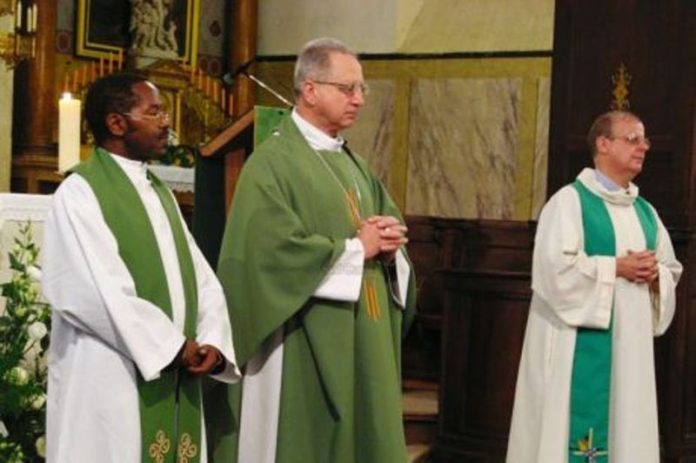By The Rwandan Lawyer
Introduction
A Rwandan priest was arrested in France on charges of providing, among other things, food to militiamen who massacred members of the Tutsi minority in his church during the 1994 genocide in the African country i.e. Rwanda. Marcel Hitayezu, who was born in 1956, was charged on Wednesday with genocide and being an accomplice to crimes against humanity, according to the national anti-terrorism prosecutor’s office. He was arrested at his home in Montlieu-la-Garde, southwestern France. The issue to discuss hereby is to know whether the judicial speculations on his case are not underlied by political motives given the situation prevailing in Rwanda in terms of violations of fundamental rights and unfair trials.
1.The case
Prosecutors said Hitayezu was the priest at a church in Mubuga, in southern Rwanda, when the genocide took place and in April 1994 withheld food and water to Tutsis who had sought refuge in his church. He instead gave food to extremist Interahamwe militiamen who attacked the refugees, prosecutors added. “Marcel Hitayezu denied the charges at his initial appearance before a judge,” the prosecutor’s office said.
1.1.Extradition request
Rwanda had sought to extradite Hitayezu, but France’s Cour de Cassation, the country’s highest criminal court, in 2016 rejected the request, as it did similar requests by Kigali for others suspected of having taken part in the genocide that saw around 800,000 people slaughtered, mainly from the ethnic Tutsi minority.
The genocide between April and July 1994 began after Rwanda’s Hutu President Juvenal Habyarimana, with whom Paris had cultivated close ties, was killed when his plane was shot down over Kigali on April 6. Extremist Hutu militias went on rampage, killing Tutsis and moderate Hutus, in a bloodbath that came after decades of tensions and violence between the two communities. French authorities had launched a probe into Rwanda’s accusations against Hitayezu in July 2019, three years after the extradition request. “He was until Wednesday vicar to the priest at the Montlieu-la-Garde church,” the regional archdiocese told AFP.
1.2.Excellent news
According to the daily La Croix, Hitayezu spent three years in refugee camps in eastern Congo before arriving in France in 1998 or 1999. He was given refugee status in France in 2011. “It’s excellent news,” Alain Gauthier, who has spent years hunting down people living in France suspected of having taken part in the genocide, told AFP on learning of the arrest. Gauthier in 2001 also co-founded an association, the Collective of Civil Plaintiffs for Rwanda. “The church must examine how it gave responsibilities to people suspected of having taken part in the genocide,” Gauthier added. Another priest who has taken refuge in France, Wenceslas Munyeshyaka, was also accused of being implicated in the 1994 massacres. But his case was dismissed by the courts in France.
2.Analysis
The arrest of the priest for genocide was object of judicial speculations pushing to think of political involvements.
2.1.Divergent judicial decisions
The perusal of the case of this priest allowed us to realize that the French courts were either retaining him as innocent of charges against him or incriminating him under pressure the Collective of Civil Plaintiffs for Rwanda. but the issue not yet solved is that facts were not judged by those courts so that there was matter of debating on procedural objections. Courts being independent in principle, their partiality is often motivated by the pressure exercised on them and it is what occurred.
2.2.Extradition possibility
The courts of France may opt for judging the case or extradite the priest in Rwanda where he allegedly committed facts in compliance with the rule«aut dedere aut judicare». The option of judging the priest may be more convenient in terms of respect of international standards of fair trial and good administration of justice. It overt that the court will have a hard task of access witnesses on the field where he is reported to have perpetrated the crime bu it is not impossible but feasible. The option of transferring him to Rwandan courts favors the Rwandan government but expectation of a fair trial is a utopia and that country does not ignore reports accusing the country to violate fundamental rights.
2.3.incrimination of catholic church
None ignores that militia were so powerful that to counter their operations was punished by death regardless of his ethnic. There is no evidence that this priest has any influence on those militia who slaughtered people in his parish and legally speaking failure to react while someone was materially unable to do so cannot be qualified as complicity unless they prove that he had means. In our view, the Rwandan government succeeds thereby to strengthen its incrimination of catholic church by the number of clergymen who are prosecuted and unjustly sentenced.
Conclusion
The extradition of this priest will testify that the French state puts aside report denouncing an unfair justice in Rwanda and will have submitted him to the justice of victors against vanquished.
































































